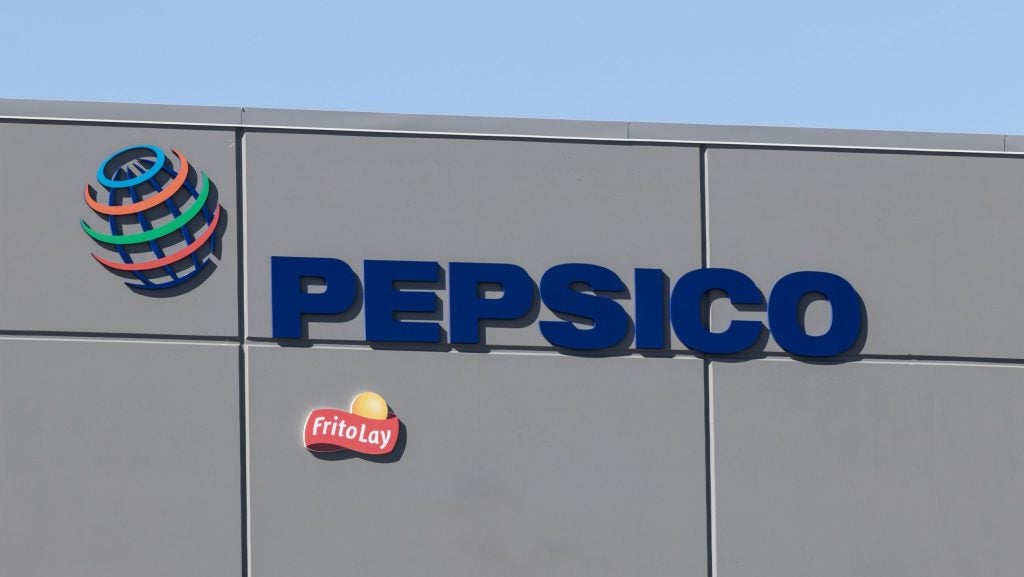PepsiCo CEO Ramon Laguarta has insisted the US food and drinks giant is working with “a sense of urgency” on reshaping its portfolio and reducing costs amid scrutiny from activist investor Elliott Investment Management.
Last month, Elliott called for the Lay’s crisps maker to review the make-up of its businesses in North America after a period of “poor financial results”.
At the time, Eliott, which manages funds with a $4bn stake in PepsiCo, said the company was at “a critical inflection point”.
In an investor call yesterday (9 October) following the release of PepsiCo’s third-quarter results, Laguarta was asked by TD Cowen analyst Robert Moskow about the company’s “willingness to engage” with Elliott and whether there were any recommendations the investor had made that were “particularly important” for the group’s “strategic direction”.
Laguarta said: “Of all the ideas that Elliott Investment Management mentioned in their document, most of them are included in our strategy 2030 and we’re acting on it.
“I think we’re acting with a sense of urgency on both portfolio transformation, simplification of the portfolio, cost reduction to invest in future growth, et cetera.”
Laguarta added discussions with the activist investor had been “very constructive and collaborative”.
He said both parties had agreed the business “is undervalued” and that there were “lot of opportunities to improve the valuation of the company by making a few interventions with a sense of urgency in the way we’re doing”.
Innovation push
Laguarta said PepsiCo is relaunching its Lay’s, Tostitos and Gatorade brands.
This week, the company announced a global rebrand for Lay’s, as well as a new lower sugar variant for Gatorade which has 75% less sugar than its Gatorade Thirst Quencher product.
PepsiCo is also working to eliminate artificial food dyes and flavours from its Tostitos and Lay’s products by the end of this year. It is also launching a ‘NKD’ line for Doritos and Cheetos that will be free of artificial colours and flavours.
Laguarta also highlighted the company’s ongoing innovation in the area of protein, which includes introducing a Propel product that targets GLP-1 consumers. The product has “a special type of electrolytes, high content of fibre and good levels of protein”, Laguarta said.
Fibre is an ongoing focus for the business in its portfolio transformation. “We’re launching products with higher fibre. I think fibre will be the next protein,” Laguarta told analysts. “Consumers are starting to understand that fibre is a benefit that they need. It’s actually a deficiency in US consumers’ diets and that will be elevated.”
As well as focusing on existing products, the group will develop innovation specifically for the away-from-home channel, “moving towards meals and more elevated experience”, Laguarta said.
Cutting costs
Laguarta told analysts that, “with a very high sense of urgency,” the group was “attacking the cost structure in the different businesses with different tools”.
PepsiCo said it is cutting around 15% of SKUs from its food business in North America and looking to remove products sold by its domestic drinks arm “to reduce supply chain complexity and drive improved, focused in-market execution”.
The company has already made changes to its Frito-Lay business this year, shutting one site in Liberty, New York, and halting production at a processing plant in southern California.
PepsiCo said it had cut the number of full-time Frito-Lay staff by 7% so far this year and added more reductions were expected before the end of 2025.
Speaking to investors on Frito-Lay, Laguarta said: “The demand signal we had in 2023 is different from the demand signal we have in 2025. There’s some adjustment that we’re making to both the assets and the headcount in the business to make sure that we have the right cost structure to navigate the coming quarter.”
In the third quarter, PepsiCo generated net revenue of $24bn, up 2.6%. It rose 1.3% on an organic basis.
Year-to-date, net revenue was up 0.8% on a reported basis and by 1.8% organically.
Operating profit declined roughly 8% to $3.6bn. Net income was also down 11.5% for the total business, at $2.6bn.
PepsiCo Foods North America saw flat revenues in the third quarter at $6.5bn while the beverages business saw revenues grow 2% on a reported basis to $7.32bn.
Volumes in the quarter were also down 4% for PFNA and 3% for PBNA.









